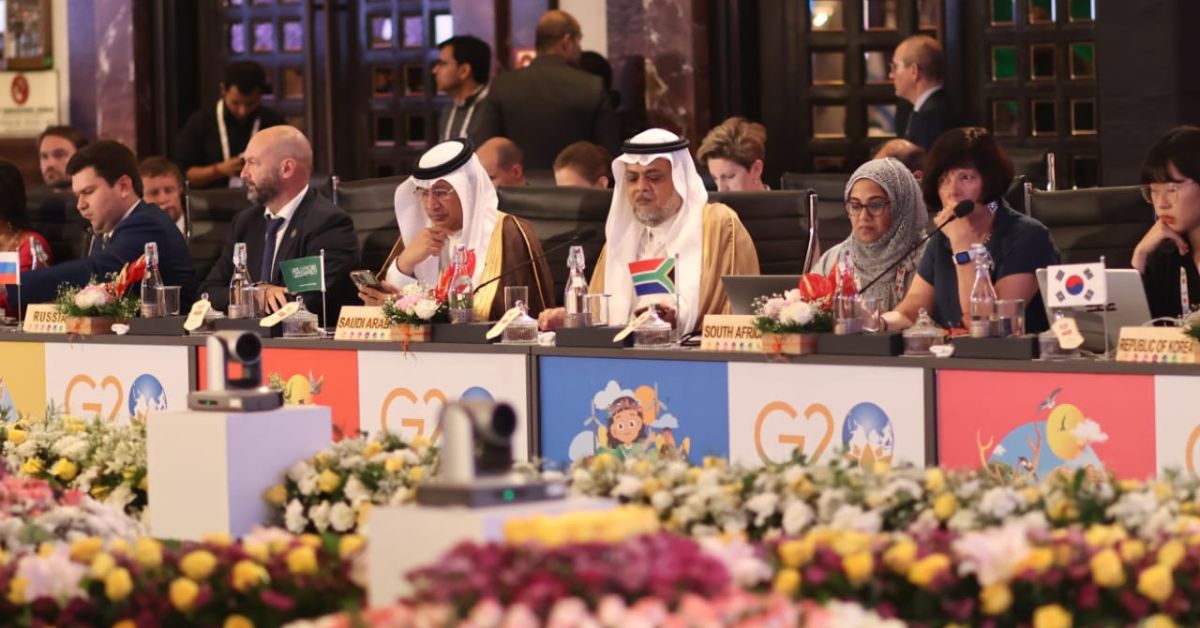Riyadh — Saudi Arabia aims to achieve 30 percent marine reserves by 2030 and the implementation of a national strategy for the sustainability of the Red Sea, focusing on 15 sectors of the blue economy, said the Kingdom’s Deputy Minister of Environment, Water and Agriculture for Environment Dr Osama Ibrahim Faqeeha, at the G20 environment and climate ministers’ meeting held in New Delhi, India.
On behalf of the Kingdom, he expressed its appreciation for the accomplishments of the G20 in finding sustainable solutions to environmental challenges and strengthening efforts to tackle land degradation, a significant threat to biodiversity, food security, and climate change adaptation.
Dr Faqeeha discussed various crucial topics related to environmental sustainability and climate change, such as the blue economy, resource efficiency, circular economy, land and water management, and biodiversity. He highlighted the measures taken by the Kingdom to preserve marine and water ecosystems, including the Saudi Green Initiative.
Dr Faqeeha also underscored the Kingdom’s collaborations with regional countries and the International Maritime Organization to establish the Red Sea as a special marine zone, which will take effect in January 2025.
Dr. Faqeeha commended the G20’s support for the global platform CORDAP (Collaborative Action on Coral Reefs and People), which was launched during the Kingdom’s G20 presidency. CORDAP aims to accelerate research and development for coral reefs globally and strengthen preservation and restoration efforts.
He emphasized that the Kingdom has implemented a circular strategy for the carbon economy and introduced a new waste management law to increase recycling rates.
Additionally, the Kingdom has adopted various strategies to safeguard natural resources, including the National Environment Strategy, Saudi Green Initiative, National Water Strategy, and the Food Security Strategy, which aims to reduce food waste by 50%.
Dr. Faqeeha expressed the Kingdom’s gratitude for the G20’s endeavors to enhance integrated water management, aligning with the water group platform established during the Kingdom’s G20 presidency in 2020.
He highlighted the Kingdom’s significant investments in promoting renewable water sources within Saudi Arabia, such as expanding the desalination sector and maximizing the utilization of rainwater and treated water.
Dr. Faqeeha also emphasized the crucial need to strengthen multilateral efforts in addressing land degradation and its far-reaching impacts on biodiversity, food security, climate resilience, and human well-being across the globe.
He highlighted the group’s unwavering support for the global land initiative, which was launched during the Kingdom’s G20 presidency. This initiative saw G20 member states reaffirm their commitment to restore 200 million hectares of degraded lands in the Middle East under the Middle East Green Initiative.
Moreover, during the final ministerial statement session, Dr. Faqeeha reiterated the importance of active participation in the group’s discussions to bolster the commitments of all participants, support decisive actions, and work towards a sustainable future.
He welcomed the outcomes and achievements of the working group on environmental and climate sustainability, expressing appreciation for the consensus reached on the aspirations outlined in the final statement. Furthermore, he highlighted the Kingdom’s priorities in aligning with the objectives of the Kingdom’s Vision 2030.








